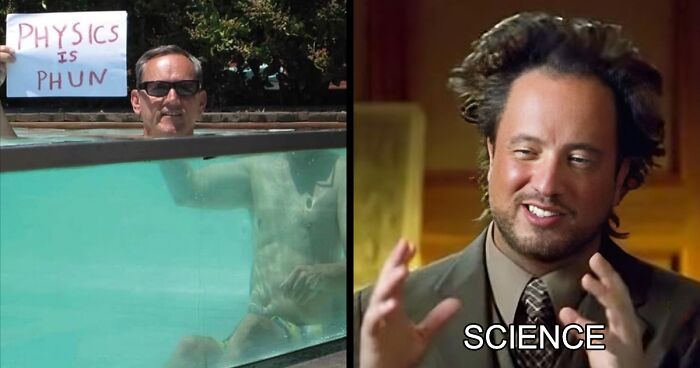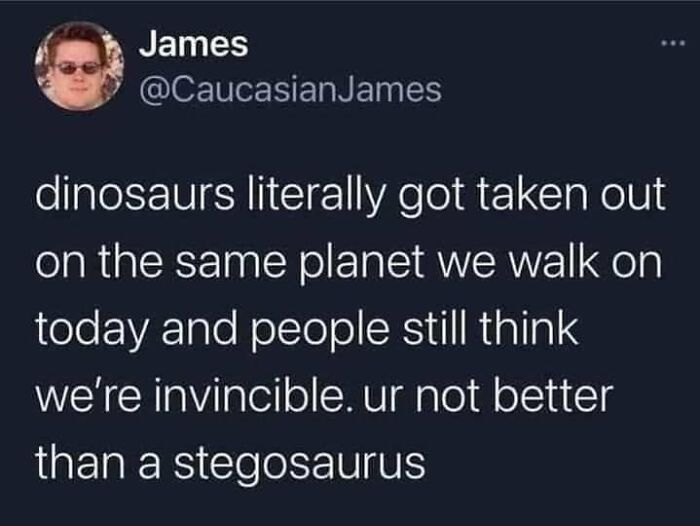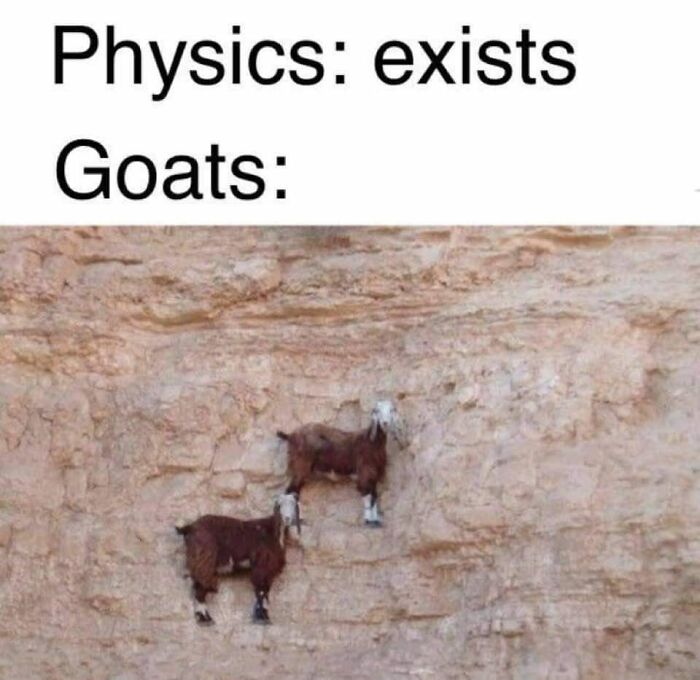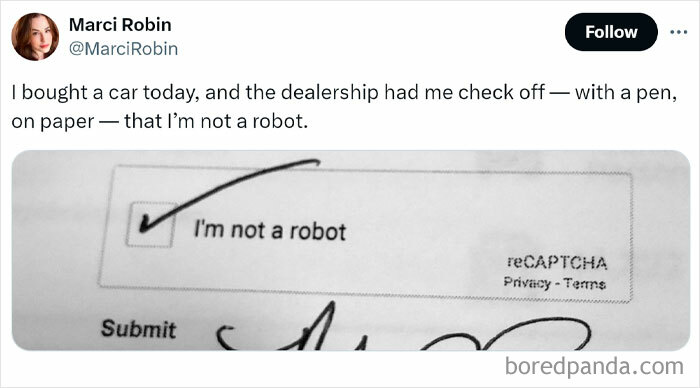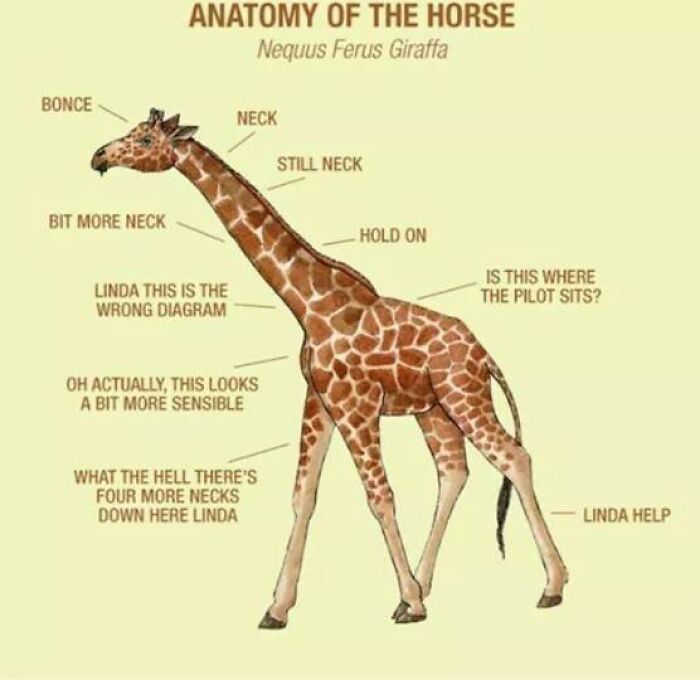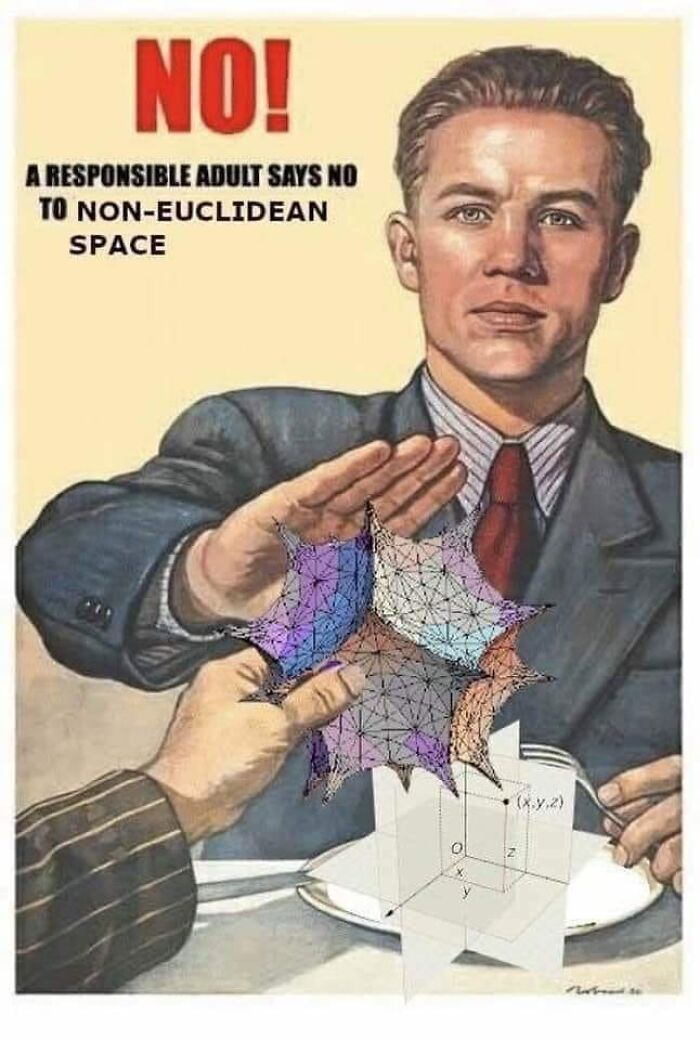Everyone has their favorite brand of humor. For those who love science, the posts you’re about to see are likely right up your alley.
We’ve collected posts from the Darker Side of Science Facebook group. While it does feature some shocking facts, we focused on the lighthearted memes about the anatomy of a giraffe, chemistry puns, and astronomy jokes worth a punchline drumroll (ba dum tss!).
Browse through this list and have a few chuckles with like-minded peers.
This post may include affiliate links.
The public group currently has a little over 893,000 members. According to its About page, topics mainly revolve around “bad experiments, worse scientists, studies you wish to god you could unsee, and much, much, more.”
In addition to these photos and memes, the page also shares articles from IFLScience. This website delivers information in an entertaining yet educational way.
Wow, the government really fooled you into thinking there's a moon, or even outer space. It's just a big wall paper in the sky that they move around
Since the group combines the concepts of science and humor, let’s get into what makes things funny, according to research.
University of Colorado professor Dr. Peter McGraw and his colleagues developed the benign violation theory. Simply put, it states that a comedic element exists in a tragic event only after a significant amount of time has passed.
Good thing happened with a molecule and not an atom. Things could blow out of proportion...
Of course we are better! It took a rock from space to wipe out the dinosaurs. But we can wipe *ourselves* out!
Dr. McGraw and his team conducted an experiment where participants unanimously saw humor in getting hit by a car if it happened five years ago.
“There needs to be something wrong,” McGraw said in an interview with ZME Science. “That’s what’s sort of the counterintuitive part of humor. It’s generally this good, beneficial thing, but it has its roots in potentially negative experiences.”
There's no way we are. this is something I choose to believe, maybe somewhere there's a civilisation that already colonised their neighbouring planet. And formed two entirely different cultures and they visit each other and are peaceful. After the war for independence obviously
Many people find a reason to laugh at supposedly inappropriate scenarios. According to Dr. McGraw, dark humor works because of psychological distance. He used the story about the Indonesian baby who smoked 40 cigarettes a day as an example.
“When I was first told about that, I laughed, because it seems unreal — what parent would let their kids smoke cigarettes?” McGraw said. “The fact that the situation seemed unbelievable made it benign. Then when I saw the video of this kid smoking, it was no longer possible to laugh about it.”
Humor has been deemed an effective method of delivering scientific information. A 2013 study featured a stand-up comedy project in Portugal that involved a group of scientists.
Researchers said tackling serious matters like climate change became easier because “laughter disarms people.”
Apparantly that's what the sanitation companies are already doing with all our trash. What am I even sorting for!?
The entertainment industry has also successfully blended science and humor through content dedicated to kids.
A research paper published by science education consultant Dr. Sai Pathmanathan mentioned popular cartoons like Spongebob SquarePants and Phineas and Ferb as examples of how they helped U.K. children learn general knowledge.
Almost certainly multiple people tried to domesticate bears. This is how natural selection works.
Hey, at least you can stare directly at the apocalypse all you want. It won't matter if you fry your retinas
Neuroscientist, comedian, and former columnist Dean Burnett advocates for learning science through humor. Here’s his explanation in an interview with From the Lab Bench.
“If people can laugh with/about science, then they won’t be as intimidated by it, and will perceive that science is a very human endeavor,” he said. “Not some monolithic process hiding behind the walls of academia and curated by emotionless intellectuals.”
However, Burnett is against forcing people to create humor, especially if it doesn’t come naturally.
“Humor being so subjective and emotive, a person to whom it isn’t ‘natural’ trying to do funny in a half-assed way can be much more grating or off-putting than them just presenting their info straight,” he said. “[It] should be seen as a useful tool, rather than a requirement.”
Oh chemistree, oh chemistree! You truly make up everything...
Burnett offers one piece of advice on using humor effectively to deliver scientific information: make it relatable.
“Assume the audience is at least as smart as you are, but doesn’t know what you know. This is a useful rule for making sure you are informative but not preachy, and not condescending.”
You should be glad they didn't make you choose the pictures that show red traffic lights. IN BLACK AND WHITE!
I like to think they just keep walking and then look around and go…woohhh how did I get up here???
Try putting the accent on "u", or say "Ouranόs" which is the greek pronunciation
Doesn't believe in laser pointers? Nah, I think he's just part cat and can't deal with the red dot without losing his mind.
Fun Fact: The vikings used to put the bones of their enemies into the smelting pot for crafting their weapons, believing their souls would make the weapons stronger. In reality, the minerals in the bones would mix with the iron to create....steel so did indeed make their weapons stronger, just not in the way they thought
Jessica, I love your ring but isn't the relationship kind of over?
Is it pedantic and/or incorrect to think both cats should have the same face?

 Dark Mode
Dark Mode 

 No fees, cancel anytime
No fees, cancel anytime 


